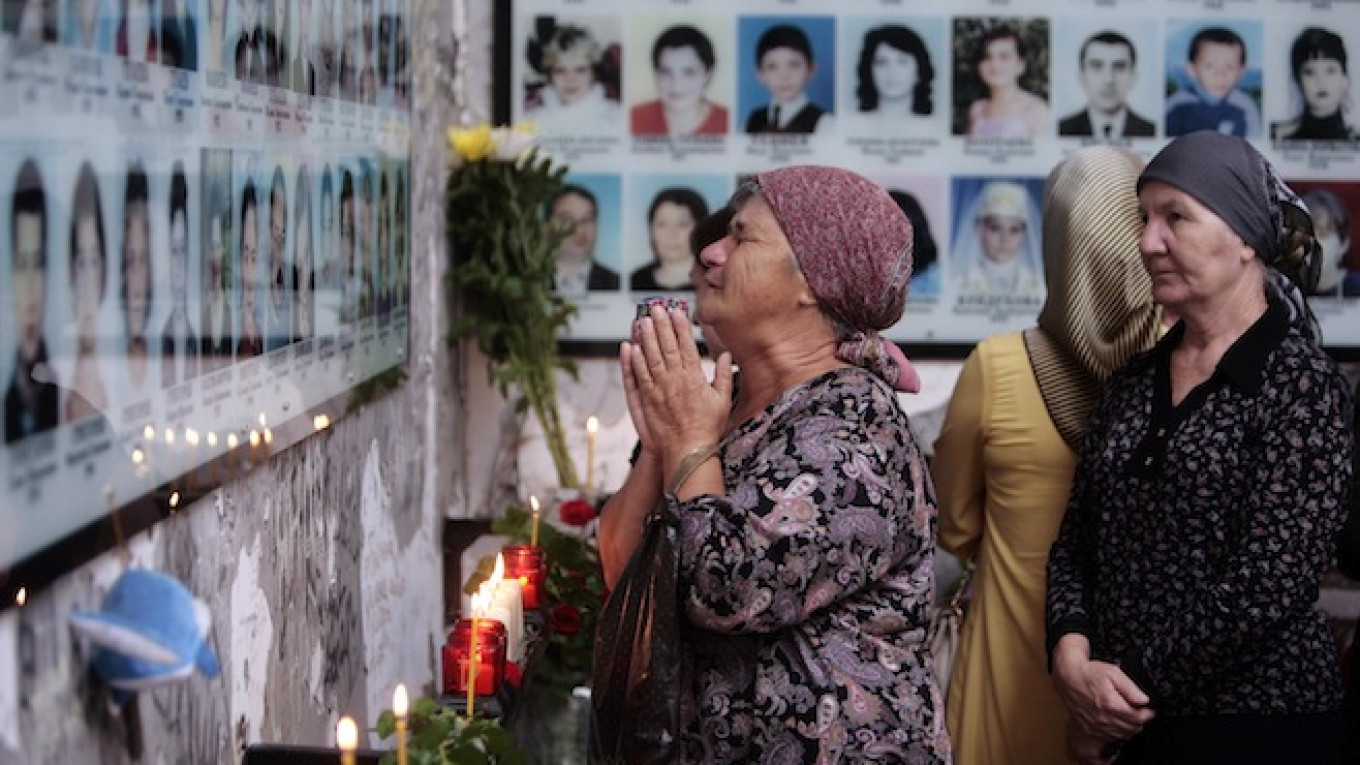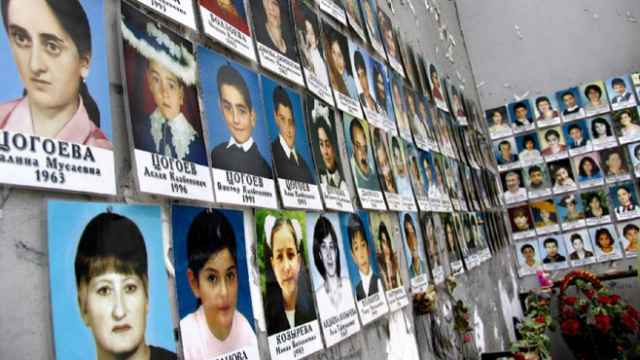On the 10th anniversary of the Beslan terrorist attack in which more than 330 people died, a poll revealed Monday that fewer Russians think authorities mishandled the crisis than in 2004.
The poll, conducted by the independent Levada Center from Aug. 22 to 25, showed a less critical attitude toward the authorities' response, with only 24 percent of respondents saying authorities had failed to do enough to prevent more casualties. In September 2004, that figure stood at 61 percent.
The Beslan attack sent shockwaves through the entire world on Sept. 1, 2004, when dozens of armed terrorists demanding independence for Chechnya stormed an elementary school and took more than 1,000 people hostage, including many children.
After a three-day standoff, an explosion occurred in the school that the government blamed on the terrorists, though some speculated that a terrorist bomb went off during a botched rescue operation by Russian security services. More than 330 people were killed in the ensuing fire and chaos, 156 of them children.
The results of the latest poll show that skepticism regarding the official version of events has receded in the 10 years since the tragedy, with only 8 percent saying the security services somehow blundered the rescue operation, compared to 17 percent in October 2004. The number of those who pinned the blame for the bloody outcome entirely on the terrorists climbed from 28 percent in 2006 to 39 percent.
Today, the number of those who believe authorities knew the attack was being planned but were unable to prevent it has also declined, from 33 percent in 2004 to 24 percent now. The number of Russians who believe authorities knew it was being planned and did nothing to stop it has more than halved, from 13 percent to 6 percent.
Respondents' views on the Chechen War, which was largely considered a factor in the Beslan attack, have also changed dramatically, according to the poll.
The number of those who believe the war fully succeeded in achieving the government's goals has more than doubled from 8 percent in 2007 — two years after a cease-fire was declared — to 20 percent now. Criticism of the war has also plummeted, with only 21 percent of respondents saying the war was unnecessary and brought about needless casualties, compared to 46 percent in 2007.
The margin of error for the survey was 3.4 percent.
More than 3,000 people visited the ruined school Monday to pay their respects, laying flowers, wreaths and photos of the victims in the courtyard, Interfax reported, citing local police.
The head of North Ossetia, Taimuraz Mamsurov, also visited the school, along with several other members of the regional government.
A Message from The Moscow Times:
Dear readers,
We are facing unprecedented challenges. Russia's Prosecutor General's Office has designated The Moscow Times as an "undesirable" organization, criminalizing our work and putting our staff at risk of prosecution. This follows our earlier unjust labeling as a "foreign agent."
These actions are direct attempts to silence independent journalism in Russia. The authorities claim our work "discredits the decisions of the Russian leadership." We see things differently: we strive to provide accurate, unbiased reporting on Russia.
We, the journalists of The Moscow Times, refuse to be silenced. But to continue our work, we need your help.
Your support, no matter how small, makes a world of difference. If you can, please support us monthly starting from just $2. It's quick to set up, and every contribution makes a significant impact.
By supporting The Moscow Times, you're defending open, independent journalism in the face of repression. Thank you for standing with us.
Remind me later.






